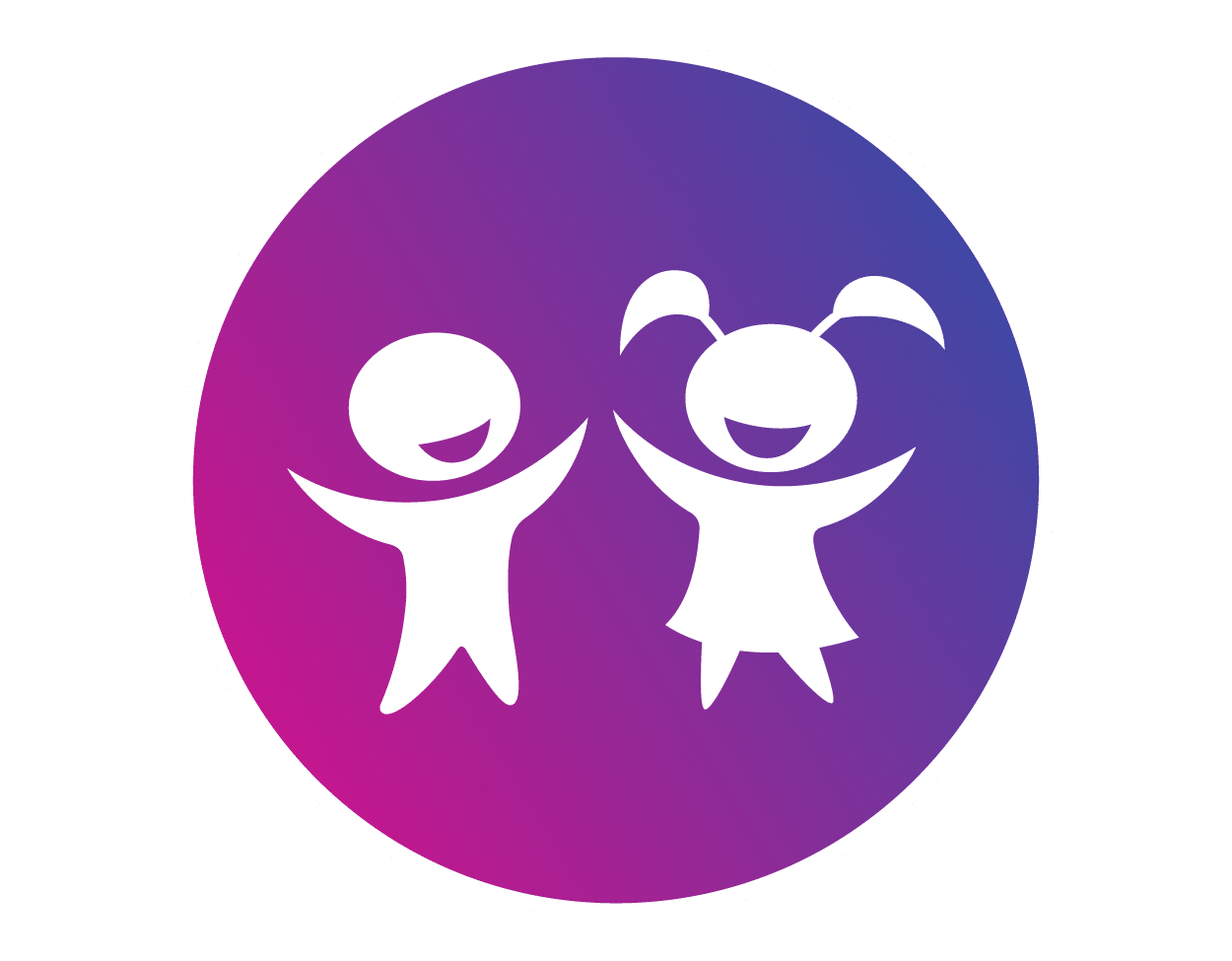

Child Care Resources
Navigate the tabs below to access a variety of helpful child care resources.
Financial Assistance
Child care financial aid aims to alleviate the financial burden of child care expenses for eligible families, ensuring access to quality care for children while parents work or attend school.
If you are seeking financial aid, follow these best practices:
- Begin by researching available programs and eligibility criteria.
- Prepare all required documentation, including proof of income and family size.
- Complete the application accurately and thoroughly.
- Be aware of deadlines and submit your application on time.
CHILD CARE & DEVELOPMENT FUND (CCDF)
The CCDF Subsidy assists low-income families, families receiving temporary public assistance and those transitioning from public assistance in obtaining child care so they can work.
IDEA Part B
Receive special education and related services under IDEA Part B if your child is ages 3-21 and you suspect a delay in their development.
MILITARY FAMILY SUBSIDIES
The National Association Child Care Resource and Referral Agencies (NACCRRA) partners with the Department of Defense (DOD) to help those who serve in the military find and afford child care.
CLARK COUNTY ECONOMIC OPPORTUNITY BOARD CHILDCARE ASSISTANCE PROGRAM
If you have children ages 0-12 and need care for your children as you get back to work, the Clark County Economic Opportunity Board may be able to help.
TEMPORARY ASSISTANCE FOR NEEDY FAMILIES (TANF)
The goals of TANF are to provide assistance to low-income families with children so they can be cared for in their own home, reduce dependency by promoting job preparation, reduce out-of-wedlock pregnancies and encourage the formation and maintenance of two-parent families. TANF provides Financial and Support Services such as child care, transportation and other services.
CHILD SUPPORT ENFORCEMENT PROGRAM (CSEP)
This program assists custodial parents or caretakers in obtaining support from an absent parent(s) for their child(ren). CSEP can assist with locating the absent parent, establishing paternity and/or establishing and enforcing financial and medical support obligations.
TRIBAL CHILD CARE & DEVELOPMENT (CCDF)
Tribes can use their CCDF federal funds to offer child care subsidies by using a voucher system, and/or having a child care center.
FINANCIAL ASSISTANCE THROUGH CHILD CARE PROVIDER
Many licensed child care providers have reduced rates for parents based on family income or other circumstances. Ask your child care provider if they offer sliding scale fees or reduced rates (military rates, multi-child discounts, corporate discounts, etc…).
HEAD START, EARLY HEAD START, & TRIBAL HEAD START
Federally funded full- or part-time programs that provide free child care and other services to help meet the health and school readiness needs of eligible children. Eligibility requirements vary.
EMPLOYER/COLLEGE SUPPORT
Your employer (or college if you are a student) may provide child care scholarships, discounts to programs in their network, or on-site child care at reduced rates. Ask your human resources department or your school’s student services department about availability of programs.
PART C & PART B OF THE INDIVIDUALS WITH DISABILITIES EDUCATION ACT (IDEA)
Infants and toddlers with disabilities (birth-2) and their families receive early intervention services under IDEA Part C. If you have concerns about your infant or toddler’s development, call Nevada Early Intervention Services below.
Child Tax Credit
If you have a dependent child under the age of 17, you may qualify for the Child Tax Credit that can be worth hundreds of dollars per child. The income limit for the Child Tax Credit is much higher than for the Earned Income Tax Credit. Contact your local IRS office, an accountant, or a tax preparer for more information. Many nonprofits also offer or host free tax support (e.g., United Way of Southern Nevada and YMCA of Southern Nevada).
CHILD CARE LICENSING
Child care licensing is your golden ticket to ensuring the safety, quality, and reliability of the child care provider you choose for your little one. When a provider is licensed, it’s like a quality assurance seal, giving you peace of mind and helping you make an informed decision for your child’s early years.
WHY DOES IT MATTER?
Your child’s well-being is what is most important, and choosing a licensed provider is a proactive step in safeguarding their growth and safety.
WHY SHOULD YOU CARE ABOUT IT?
Licensing ensures that providers adhere to safety guidelines, have appropriate staff-to-child ratios, and meet educational and developmental benchmarks.
EVEN MORE RESOURCES
Access additional provider information, and verify your provider’s licensing status by visiting website below.
What to look for in a provider
Choosing the right child care provider is crucial for your child’s well-being and your peace of mind. Here are key factors to consider and questions to ask:
1. LICENSING & ACCREDITATION
- Is the provider licensed and accredited by relevant authorities?
- Does the provider meet the state’s minimum licensing requirements?
2. SAFETY & CLEANLINESS
- What safety measures are in place, such as childproofing, emergency plans, and secure entry?
- How is hygiene maintained, including cleanliness of facilities and toys?
- Other good questions to ASK:
- Does the provider allow tours and drop-in parent observations?
- Can the teachers see all children in the room at all times?
- Is it well organized, clean, and pleasant-smelling?
- Is it safe (covered outlets, chemicals out of reach, etc…)?
- Are there a variety of age-appropriate items to engage your child?
- Are the teachers interacting with the children?
3. STAFF QUALIFICATIONS & RATIOS
- What are the qualifications and experience of the staff, including caregivers and educators?
- What is the staff-to-child ratio, and does it adhere to recommended guidelines?
4. HEALTH & NUTRITION
- What policies are in place regarding illness, medication administration, and vaccinations?
- How are meals and snacks provided, and can dietary restrictions be accommodated?
- Other good questions to ASK:
- Does the provider have a parent handbook?
- What are the teacher and director qualifications, including education, CPR, and background checks?
- What are the provider’s behavior management practices (how they encourage proper behavior)?
- What are the provider’s behavior modification practices (how they address misbehavior)?
- What other resources does the provider offer, such as free meals through initiatives like the USDA’s Child and Adult Care Food Program?
- What are the provider’s parent communication and engagement practices?
- How does the provider handle sick children and lessen the risk of illness spreading?
- What are the sign-in/out procedures?
- What is the provider’s medication storage and administration policy?
- Are providers trained to support children with special needs or allergies?
5. PARENTAL INVOLVEMENT
- Is parental involvement encouraged, and are there opportunities to participate in activities or events?
- How are concerns or feedback from parents addressed?
6. FLEXIBLE POLICIES
- What are the policies on sick days, holidays, and vacation periods?
- Is there flexibility in drop-off and pick-up time
QRIS STAR RATINGS
Silver State Stars Quality Rating Improvement System (QRIS) is a voluntary program that is open to all child care providers in Nevada and applies a systemic approach to assessing and improving child care provider quality.
iOne Star: Provider has signed up for the QRIS coaching program. They are working on making center-wide improvements to their policies, procedures, classroom environments, and staff professional development. By participating, centers are demonstrating a commitment to improving quality.
Two, Three, Four, or Five Starts: Provider has been officially rated. They have demonstrated and documented quality indicators above licensing regulation requirements. A rating is valid for two years.
Centers not indicated with a star level have chosen not to participate in the QRIS. Home providers are not included in the QRIS at this time.
FULL DAY VS PART-DAY?
Full-day early child care has significantly stronger benefits than part-day programs.
Child Care Facts
GENERAL
A child’s brain is 90% developed before they enter kindergarten
74% of Nevada families with children under six cannot access licensed child care
47% of Nevada employers cite the child care desert as the root cause of their inability to attract and retain employees
CHILDREN WHO DON’T ATTEND PRESCHOOL
67% higher chance of being arrested by early adulthood
82% higher chance of being in public housing
Children begin school up to 14 months behind
CHILDREN WHO ATTEND PRESCHOOL
More likely to graduate from high school on time
Higher income in adulthood
Less likely to face incarceration
Improved vocabulary and math skills by 11-12 standard points
Improved social-emotional and physical health

